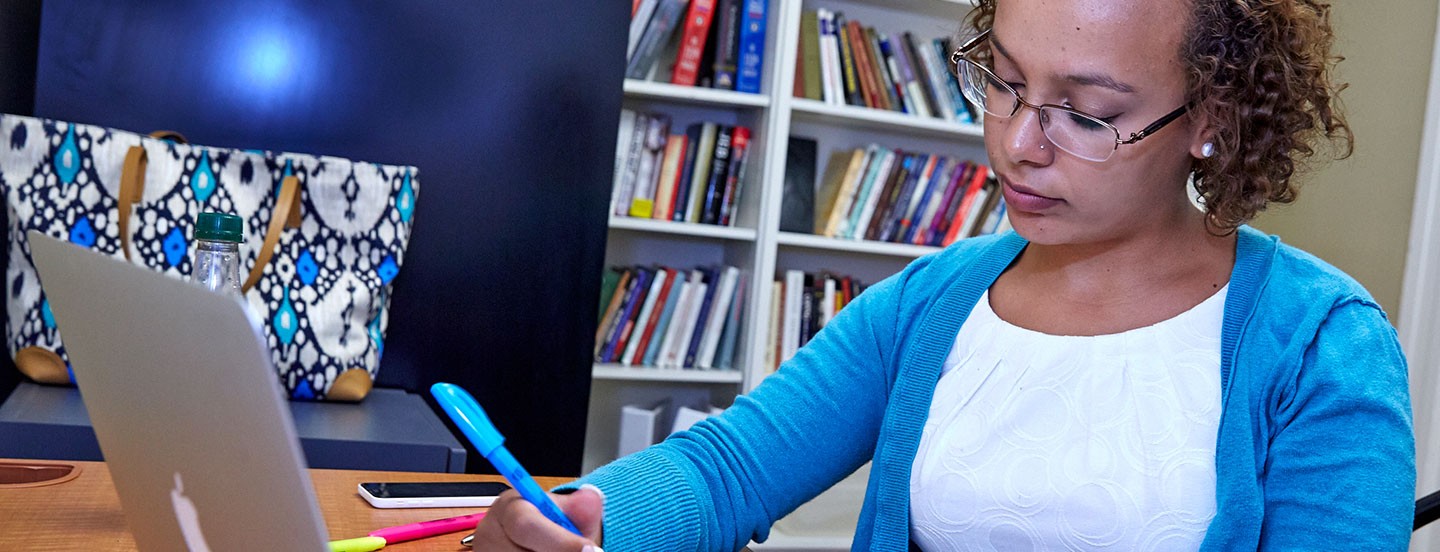
What Do You Get From a PhD?
Previously: Overview of the Graduate School Application Process (all disciplines)
By Rochelle D. Smith, Associate Dean of Diversity and Inclusion & Associate Chief Diversity Officer, Yale School of Medicine
Before you start researching potential schools and programs, you may be asking yourself if a PhD is right for you. This article describes the many benefits of a PhD, as well as some of the strategies PhD students can deploy to get the most out of their degrees.
The PhD, or the Doctorate of Philosophy, is the highest degree in research. This degree is awarded to individuals who have contributed to “the creation of new knowledge” by deeply studying a particular area of research, and advancing it by discovering or uncovering a new method, approach, design or protocol. Eight primary benefits of obtaining the PhD in the Humanities and Social Sciences (HSS) are:
- Qualification for the highest academic and research positions
- Diverse career options
- Higher lifetime economic gains
- Funding for living expenses and tuition waivers
- The sense of accomplishment from completing an advanced degree and academic respect
- Mastery of disciplinary skills such as statistical analyses, close textual readings, ethnography, and survey design
- Development of critical thinking skills to understand and digest complex scholarly materials and participate in the relevant discourse
- Leadership skills development
Due to the depth of the research PhD students conduct, completion of the degree takes longer than undergraduate study. Effective mentoring and consistent monitoring of progress can accelerate your progress while simultaneously maximizing the number and quality of research and professional tools that you acquire. You can sign up for a mentor through TLA Connect.
The First Two Years: Typically, doctoral programs begin with coursework and a qualifying exam. You will have the opportunity to develop your core areas of knowledge and add new, critical tools to your toolbox, as well as get to know potential dissertation advisors.
You and Your Mentor: Your relationship with your dissertation advisor will be central to your graduate career after your courses and exams. This close, often lifelong, professional relationship is one of the most valuable things that you get from a PhD program. You and your advisor will be responsible for setting key milestones and ensuring that you reach them as you develop your research question, conduct your doctoral research, go on the job market, and establish your research agenda at a new research institution.
Midway Through Your Program: Completing your PhD is a lot like completing a marathon; midway through you have loosened up and begun to hit your stride. It is a wonderful feeling to be at the cutting edge of research and pushing the boundaries of what we know. But even while you are in the groove, the end can feel a long way off. Make sure there are concrete, realizable goals built into your research. Savoring these accomplishments will help fuel you toward the finish line.
Finishing: You’ve almost made it! In your final years, you’ll be writing up your research and preparing to go on the job market. You have added tons of new tools to your research toolbox. You have developed a network of fellow scholars, including both peers and mentors. And you have added to the sum total of human knowledge through your doctoral research. Now it is time to begin putting together your job market dossier, which will feature your research and research skills, teaching accomplishments, and anything else job applications call for. Take this opportunity to highlight all of the above accomplishments. Focusing on all you have gotten done will give you momentum for the job market, as well as navigating well-intentioned questions from family and friends around the holidays.
The depth of knowledge gained by earning the PhD is very rewarding. It is a worthwhile endeavor and one of the best ways to find career and personal fulfillment, and at the same time provide the world with expertise and information that can eliminate suffering and provide information to make life better for humankind. To really gain additional insight, set up short informational interviews with three individuals who have a PhD in your area of interest.
Action Items:
- Schedule three 15-20 minute informational interviews with three individuals who have earned the degree you want to pursue.
- Conduct a cost-benefit analysis for choosing to pursue a PhD.
- Sign up for TLAConnect.